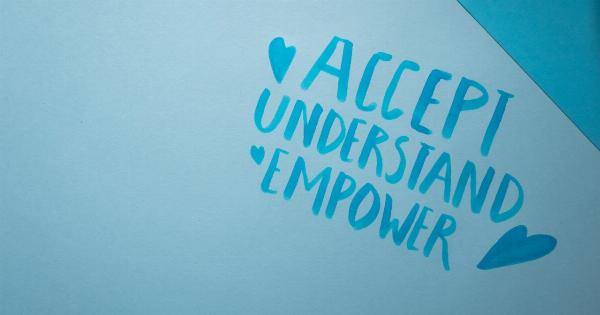Love is a complex emotion that is often expressed through words and actions. However, sometimes people say “I love you” even when they don’t truly feel it.
While this can happen to both men and women, this article focuses on why women may say “I love you” without genuinely experiencing those emotions. Understanding the reasons behind this phenomenon can help shed light on the complexities of human relationships.
The Pressure to Please
Women are often socialized to prioritize the happiness and well-being of others. From a young age, they are encouraged to be nurturing, caring, and empathetic.
This societal pressure can sometimes lead women to say “I love you” as a means to please and satisfy their partners.
Additionally, women may feel obligated to reciprocate their partner’s expression of love, even if they are not experiencing the same emotions.
They may fear disappointing their partner or damaging the relationship by withholding their own feelings.
Easier to Say Than Confront
Expressing genuine emotions can be challenging, especially when those emotions are not positive. Saying “I love you” can serve as a diversion from addressing deeper issues within the relationship.
By uttering these three words, women may believe that they are providing temporary relief or avoiding an uncomfortable confrontation.
Furthermore, women may fear the consequences of expressing their true feelings. They may worry about the potential for arguments, conflicts, or even a breakup if they admit that they don’t genuinely love their partner.
As a result, they resort to using empty words as a temporary solution.
Insecurity and Fear of Loneliness
Many women struggle with feelings of insecurity and a fear of loneliness. They may desire companionship and be willing to settle for a relationship where they don’t genuinely experience love.
By saying “I love you,” they may hope to convince themselves of their own emotions or convince their partner to stay in the relationship.
Women may also fear being alone and believe that it is better to be in a relationship, even if the love is not reciprocated.
In some cases, the fear of loneliness outweighs the authenticity of their feelings, leading them to say “I love you” without truly meaning it.
External Expectations
Society often places unrealistic expectations on relationships and love. Women, in particular, may feel pressured to conform to societal norms and expectations.
Saying “I love you” is seen as a milestone in a relationship, and women may believe that uttering these words will solidify their commitment or prove that they are dedicated partners.
Women may also say “I love you” to align with the expectations of family and friends. They may not want to face judgment or criticism for not expressing love, so they choose to use these words as a facade to match the societal norm.
Misinterpretation of Intense Feelings
Love is a complex emotion that can sometimes be confused with other intense feelings such as infatuation, lust, or even dependency.
Women may mistake these emotions for love and believe that saying “I love you” accurately represents their emotional state.
In some cases, women may also believe that love will eventually develop or grow. By saying “I love you” prematurely, they may hope to accelerate the process of falling in love, even if they are not there yet.
Desire for Emotional Connection
Humans have an innate need for emotional connection and intimacy. Women may say “I love you” as a way to create or maintain a deep emotional bond with their partner, even if their own feelings are not as strong.
By saying “I love you,” women may strive to foster a sense of closeness, trust, and vulnerability. They may believe that expressing love will encourage their partner to reciprocate these emotions and deepen their connection.
Fear of Hurting Their Partner
Women’s empathy and compassion can sometimes prevent them from being completely honest about their feelings. They may fear hurting their partner by admitting that they don’t truly love them.
Women may prioritize their partner’s feelings over their own, believing that it is kinder to say “I love you” even if it isn’t entirely true.
They may hope that by expressing this sentiment, their partner will feel loved and valued, even if their own emotions are not reciprocated.
Denial and Self-Deception
Denial is a powerful defense mechanism that humans often employ to protect themselves from uncomfortable truths. Women may deceive themselves into believing that they genuinely love their partner, despite lacking true emotional connection.
This self-deception may stem from a desire to maintain the status quo or avoid confronting deeper issues within the relationship. The subconscious mind may convince women that they feel love, even if their true emotions are more complicated.
Unresolved Past Trauma
Unresolved past trauma can significantly impact an individual’s ability to form genuine emotional connections. Women who have experienced emotional or relational trauma may struggle with developing true feelings of love.
Saying “I love you” may serve as a defense mechanism to protect themselves from potential hurt or vulnerability. They may fear intimacy and use empty expressions of love to avoid facing their own unresolved trauma.
Conclusion
Women saying “I love you” without genuine feelings is a multi-faceted phenomenon.
It can stem from societal pressures, insecurities, fear of loneliness, external expectations, misinterpretation of emotions, the desire for emotional connection, fear of hurting their partner, denial, and unresolved trauma.
Understanding the reasons behind this behavior allows for greater compassion, empathy, and communication within relationships.
It is essential to create a safe and non-judgmental space where women can express their true emotions without fear of reprisal or damaging the relationship.































